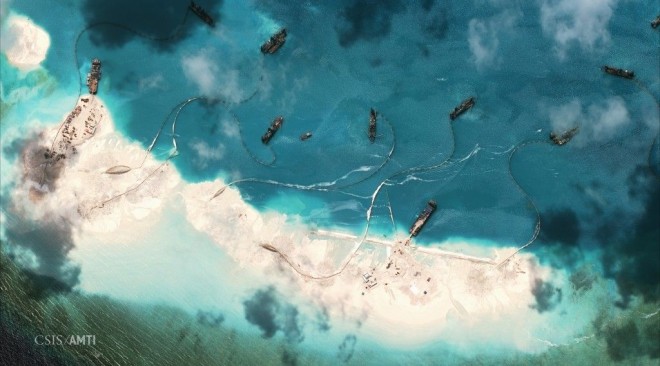Allies concerned at China’s maritime moves
WASHINGTON, United States — US, Japanese and South Korean diplomats Thursday renewed concerns about moves by China to stake its claim to disputed seas and urged Beijing to preserve freedom of navigation in the key waterways.
Deputy US Secretary Tony Blinken repeated America’s position that all competing claims in the South and East China Seas should be dealt with according to the rule of law.
READ: DFA chief: US vows presence in disputed waters amid China reclamation
Countries should “not take unilateral actions,” he stressed, after Beijing’s efforts to stake its claim to most of the South China Sea were high on the agenda for trilateral and bilateral talks with his Japanese and South Korean counterparts.
READ: China, Russia military activity growing in Asia-Pacific–US
Article continues after this advertisement“We have consensus among us that the peaceful and harmonious rise of China we all welcome,” said Japanese Vice Foreign Minister Akitaka Saiki.
Article continues after this advertisement“At the same time, China, as a major power, not only in this region but globally, has a responsibility to… abide by international law.”
He added “China has a responsibility to address properly the concerns which are being shared by the members of the region, in Asia.”
China claims sovereignty over most of the South China Sea, including areas just off the coasts of other nations, using an assertive demarcation line that first appeared on Chinese maps in the 1940s.
Following a tense standoff between Chinese maritime patrol vessels and the Philippine navy in 2012, China took control of a rich fishing ground called Scarborough Shoal that is within the Philippines’ exclusive economic zone.
Satellite images have now shown China recently embarking on major construction activities to expand Chinese-controlled reefs and islets in the Spratly Islands, one of the biggest archipelagos in the sea.
South Korean Vice Foreign Minister Cho Tae-Yong called for the implementation of existing frameworks “so that we can preserve the freedom of navigation, stability in that body of water.”
But he also urged the swift conclusion of talks between China and Southeast Asian nations on a code of conduct in the South China and East China seas.
That would allow nations like South Korea to “enjoy this body of water for the purpose of trading, shipping our goods back and forth,” he said.
RELATED STORIES
Palace alarmed by China’s massive reclamation activities
